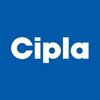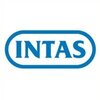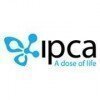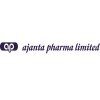Filter interviews by
Jubilant Generics Senior Research Associate Interview Questions and Answers
Jubilant Generics Senior Research Associate Interview Experiences
1 interview found
I applied via Naukri.com and was interviewed before Oct 2021. There were 2 interview rounds.
(4 Questions)
- Q1. General questions about my job experience.
- Ans. What you do in your previous company. On which instruments your are fluent.
- Q2. Why are looking for job change?
- Ans. To grow personally and professional and to explore more of the pharmaceutical industry to explore new ideas and learnings.
- Q3. Tell me about your yourself.
- Q4. Just go step by step. Your basic information then explain your job experiences.
As per your experience and related to your current job profile
Interview Preparation Tips
- HPLC
- GC
- Dissolution
- Dissolution calibration
- Related substance
- Assay method method development
- Analytical Method Development
- Analytical Method Validation
So be clear and transparent about your job profile and CV simultaneously.
Top trending discussions






Interview questions from similar companies

I applied via Approached by Company and was interviewed before Jun 2021. There were 2 interview rounds.

(1 Question)
- Q1. How many years you stay in this organisation?
- Ans. This organisation is really good, if I thought I will continues upto retirement.
Interview Preparation Tips

Associate Interview Questions & Answers
Akums Drugs & Pharmaceuticals Limitedposted on 12 Jun 2021
Interview Questionnaire
7 Questions
- Q1. Tell Me About Yourself?
- Q2. What Motivates You?
- Q3. Why Do You Want This Job?
- Q4. What Can You Bring to the Company?
- Q5. What Are Your Greatest Strength?
- Q6. What is Your salary Range expectation?
- Q7. Do You have any Question?
Interview Preparation Tips

Senior Research Associate Interview Questions & Answers
Aurobindo Pharmaposted on 25 Apr 2024
I applied via Approached by Company and was interviewed before Apr 2023. There were 3 interview rounds.
(2 Questions)
- Q1. Personal details
- Q2. Job description
(2 Questions)
- Q1. Subject related
- Q2. Previous experience related
(2 Questions)
- Q1. Salary discussion
- Q2. Confirmation about job
Interview Preparation Tips

I applied via Naukri.com and was interviewed in Sep 2020. There were 3 interview rounds.
Interview Questionnaire
1 Question
- Q1. Interview Questions on Chemistry
Interview Preparation Tips

Senior Research Associate Interview Questions & Answers
Zydus Lifesciencesposted on 19 Nov 2021
I applied via Company Website and was interviewed in May 2021. There were 3 interview rounds.
Interview Questionnaire
1 Question
- Q1. Technical question regarding my job profile
Interview Preparation Tips


Depend upon role and designation assignment will be given
(2 Questions)
- Q1. Na na na na
- Q2. Current role profile and bases

I appeared for an interview before Feb 2024.
(2 Questions)
- Q1. What is preventive maintenance?
- Ans.
Preventive maintenance is the practice of regularly inspecting, cleaning, and servicing equipment to prevent breakdowns and prolong its lifespan.
Regularly inspecting equipment for signs of wear and tear
Cleaning and lubricating moving parts
Replacing worn out parts before they fail
Scheduling routine maintenance tasks based on manufacturer recommendations
Examples: changing the oil in a car every 5,000 miles, cleaning the
- Q2. Preventive maintenance
(1 Question)
- Q1. What is preventive maintenance?
- Ans.
Preventive maintenance is the practice of regularly inspecting, cleaning, and servicing equipment to prevent breakdowns and prolong its lifespan.
Regularly inspecting equipment for signs of wear and tear
Cleaning and lubricating machinery to prevent corrosion and friction
Replacing worn out parts before they fail
Scheduling routine maintenance tasks based on manufacturer recommendations
Examples: changing oil in a car, clea

Senior Research Associate Interview Questions & Answers
Intas Pharmaceuticalsposted on 29 Sep 2022
I applied via Approached by Company and was interviewed in Sep 2022. There were 2 interview rounds.

(4 Questions)
- Q1. Type of dissolution and method development in it , type of formulations handled and method development on it. How to start the force degradation and lipid content analysis. Use various membrane filters in ...
- Ans.
The interview question asks about dissolution and method development, formulation handling, force degradation, lipid content analysis, and the use of membrane filters in methods.
Dissolution refers to the process of a solid substance dissolving in a liquid medium.
Method development involves creating and optimizing analytical methods for various purposes.
Formulations handled can include tablets, capsules, suspensions, or...
- Q2. Development . How to quantify the free and bound drug in liposomal formulation and it's quantify.
- Q3. Criticality for method development in various lipids
- Ans.
Method development critical for accurate lipid analysis. Different lipids require different methods.
Method development is crucial for accurate lipid analysis
Different lipids require different methods for analysis
Factors like polarity, solubility, and structure affect method development
Examples of lipids include triglycerides, phospholipids, and cholesterol esters
- Q4. Working principle of various detectors
Interview Preparation Tips
- Strong Analytical Skills

Research Associate Interview Questions & Answers
Alembic Pharmaceuticalsposted on 6 Feb 2021
I applied via Recruitment Consultant and was interviewed in Aug 2020. There were 3 interview rounds.
Interview Questionnaire
1 Question
- Q1. General interaction, Technical Questions.
Interview Preparation Tips
Jubilant Generics Interview FAQs
Tell us how to improve this page.
Jubilant Generics Interviews By Designations
- Jubilant Generics Chemist Interview Questions
- Jubilant Generics QC Chemist Interview Questions
- Jubilant Generics Research Associate Interview Questions
- Jubilant Generics Production Interview Questions
- Jubilant Generics Director Interview Questions
- Jubilant Generics Assistant Manager Interview Questions
- Jubilant Generics Maintenance Engineer Interview Questions
- Jubilant Generics Executive Interview Questions
- Show more
Interview Questions for Popular Designations
- Research Associate Interview Questions
- Research Scientist Interview Questions
- Clinical Research Coordinator Interview Questions
- Clinical Research Associate Interview Questions
- Research Analyst Interview Questions
- Trainee Research Associate Interview Questions
- Junior Research Analyst Interview Questions
- Executive Research Development Interview Questions
- Show more
Senior Research Associate Interview Questions from Similar Companies
Jubilant Generics Senior Research Associate Reviews and Ratings
based on 6 reviews
Rating in categories
|
Executive
152
salaries
| ₹3.1 L/yr - ₹8 L/yr |
|
Senior Executive
144
salaries
| ₹5.8 L/yr - ₹10.5 L/yr |
|
Assistant Manager
126
salaries
| ₹5.8 L/yr - ₹14 L/yr |
|
Chemist
103
salaries
| ₹1.5 L/yr - ₹5.2 L/yr |
|
Officer
91
salaries
| ₹2.4 L/yr - ₹6 L/yr |

Cipla

Dr. Reddy's

Lupin

Zydus Lifesciences
- Home >
- Interviews >
- Jubilant Generics Interview Questions >
- Jubilant Generics Senior Research Associate Interview Questions











